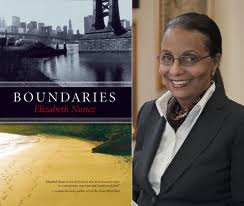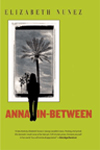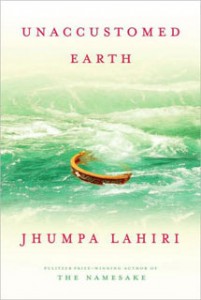Thursday’s Work-in-Progress: On the Dangers of Disrupting the Fictional Dream
One of the best things about the surgery that I underwent last month is that–just as we’d hoped–it has corrected a medical problem and therefore vastly improved my quality of life. For instance, for a long time before the surgery, I was often unable to make (or keep) plans with friends and family because I was often too exhausted and/or housebound.
And I missed so many literary events that I would have loved to attend.
 Last week, as you’ll remember, I wrote about a Jhumpa Lahiri reading that I’d just attended. This week, I had the privilege of going to a launch event for Boundaries, the latest novel by Elizabeth Nunez. I’ve been lucky to get to know Elizabeth through my work at The City University of New York, where she is a Distinguished Professor of English at Hunter College. (And I assigned and edited this profile of her after her novel Anna In-Between was published in 2009.)
Last week, as you’ll remember, I wrote about a Jhumpa Lahiri reading that I’d just attended. This week, I had the privilege of going to a launch event for Boundaries, the latest novel by Elizabeth Nunez. I’ve been lucky to get to know Elizabeth through my work at The City University of New York, where she is a Distinguished Professor of English at Hunter College. (And I assigned and edited this profile of her after her novel Anna In-Between was published in 2009.)
Boundaries is a sequel to Anna In-Between, and I’ve just begun reading it. At the Americas Society here in New York on Tuesday evening, Elizabeth was interviewed by literary critic and professor Donette Francis. Toward the end of the evening, audience members were able to pose questions, too.
One young woman asked Elizabeth–a native of Trinidad–why she had chosen not to name the island in which Anna In-Between is set (and from which the protagonist of Boundaries hails). In her response, Elizabeth explained that when she published an earlier novel, in which she specified Trinidad as the setting, a good friend–also from the island–had told her that he couldn’t read past the third page. Why?
Because Elizabeth had gotten a certain island detail wrong. This friend was an experienced sailor, and there was something about the way Elizabeth had written about the local wind patterns that immediately broke his sense of immersion in the story.
Fiction-writers-in-training are often warned about the precariousness of “the fictional dream,” that fragile bond that links the reader to the world evoked within a novel or short story. We’re taught to do whatever we can to avoid disrupting that dream. We’re taught that it’s part of the job, and that it often requires additional research (Elizabeth gave us examples of the lengths to which she has gone in pursuit of getting the details right).

